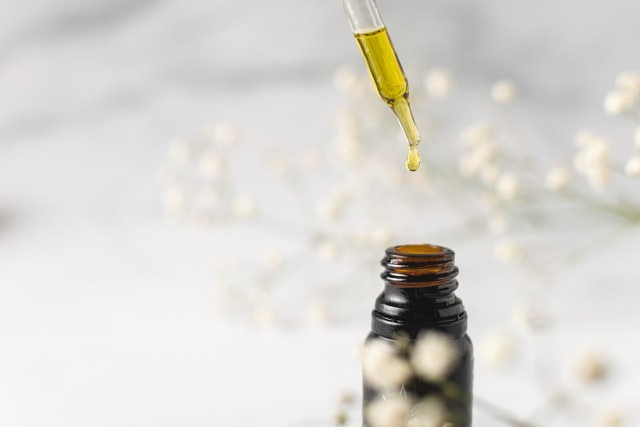The internet is full of health tips, suggestions for alternative medicine, and health trends (have you seen the latest TikTok trends?). And recently, fulvic acid has been talked about as a healthy supplement on social media. But as with any health trend, you should think carefully before jumping in.
Elizabeth Bradley, MD, who is the director of Functional Medicine, says that there are signs that fulvic acid could help people with diabetes, Alzheimer’s disease, and inflammatory problems. But there hasn’t been enough research to say for sure that it’s safe or really helpful. Here’s a list of the things we do know.
What exactly is fulvic acid?
Fulvic acid is a chemical compound that is made when microorganisms in the soil break down plant matter over long periods of time. This process can sometimes take hundreds of years. You can find fulvic acid in clay, sand, mountain rocks, and mud. Depending on where you get it, it can have different properties. Fulvic acid from sand in Israel may have different properties than fulvic acid from peat moss in Canada or mountain rock in Colorado, for example.
Most of the time, fulvic acid has been found in shilajit, a sticky substance that looks like tar and is found in the rocks of the Himalayas. Shilajit has been used in traditional, Eastern, and Ayurvedic medicine in India and Nepal for thousands of years because it helps people feel younger and fights to age. This is thought to be true because shilajit has a lot of fulvic acids, which have anti-inflammatory and antioxidant properties and is found in high amounts in it.
Dr Bradley says, “The problem is that shilajit has been shown to be safe, but the doses are not usually controlled.”
Because there aren’t many rules about fulvic acid and there hasn’t been much scientific research on humans in Western medicine, it’s hard to say for sure what benefits it has at different doses. That means we don’t know much about how much is too much. If you take more than the recommended amount of fulvic acid, it could cause some serious side effects.
Fulvic acid is good for your health.
Animal tests and other research suggest that fulvic acid could help with:
- Ulcers.
- Allergies.
- Eczema.
- Anxiety and remembering things.
- Gastrointestinal function.
- Immune system response.
- Hypoxia or low oxygen in the blood, tiredness, and fatigue are all problems that can happen at high altitudes.
Most importantly, it has been shown to have the potential to prevent diseases like diabetes that are caused by inflammation. It might also help with neurodegenerative diseases like Alzheimer’s because it might stop the buildup of proteins that speed up the development of diseases like that.
But Dr. Bradley says that at higher doses, fulvic acid could increase oxidative damage (when free radicals in your body damage cells and tissues) and hurt your immune system.
“There are two sides to every coin. It can be an antioxidant, but it can also be an oxidant. This means that it can cause oxidative damage instead of stopping it, as Dr Bradley explains.
Fulvic acid has some side effects.
Some studies on fulvic acid have shown that it has few or no side effects, but these studies have mostly been small. Plus, fulvic acid products aren’t regulated, so you don’t know what you might get.
Dr Bradley says, “If you eat this from a source whose purity you don’t know, you could be eating heavy metals like mercury and arsenic.”
Studies have shown that the amount of lead, mercury, and arsenic in Ayurvedic medicines has been going up, which can cause lead poisoning. Because of this, Dr Bradley says that you should wait until more research is done before going to a functional medicine doctor for fulvic acid. She says that instead, you should try other things, like fish oil, which has been shown to help conditions like rheumatoid arthritis by reducing inflammation.
Dr Bradley says, “I would look at other products that would have similar effects instead of going straight to fulvic acid.” This is because studies haven’t been able to say for sure how much you should take.
Should you take an extra dose of fulvic acid?
It’s too soon to know if fulvic acid will help with the problem you want to treat. It’s best to stay away from fulvic acid supplements until Western medicine does the necessary scientific research and clinical tests on people. Instead, keep up with the latest research and ask your primary care doctor or a specialist in functional medicine if there are any other treatments or supplements that can work in the same way.
Dr Bradley says, “I wouldn’t have a patient take this just because they read something about it on the internet.” “Not enough studies on people have shown a real, positive effect. But I think there is potential and it should be looked into.”
